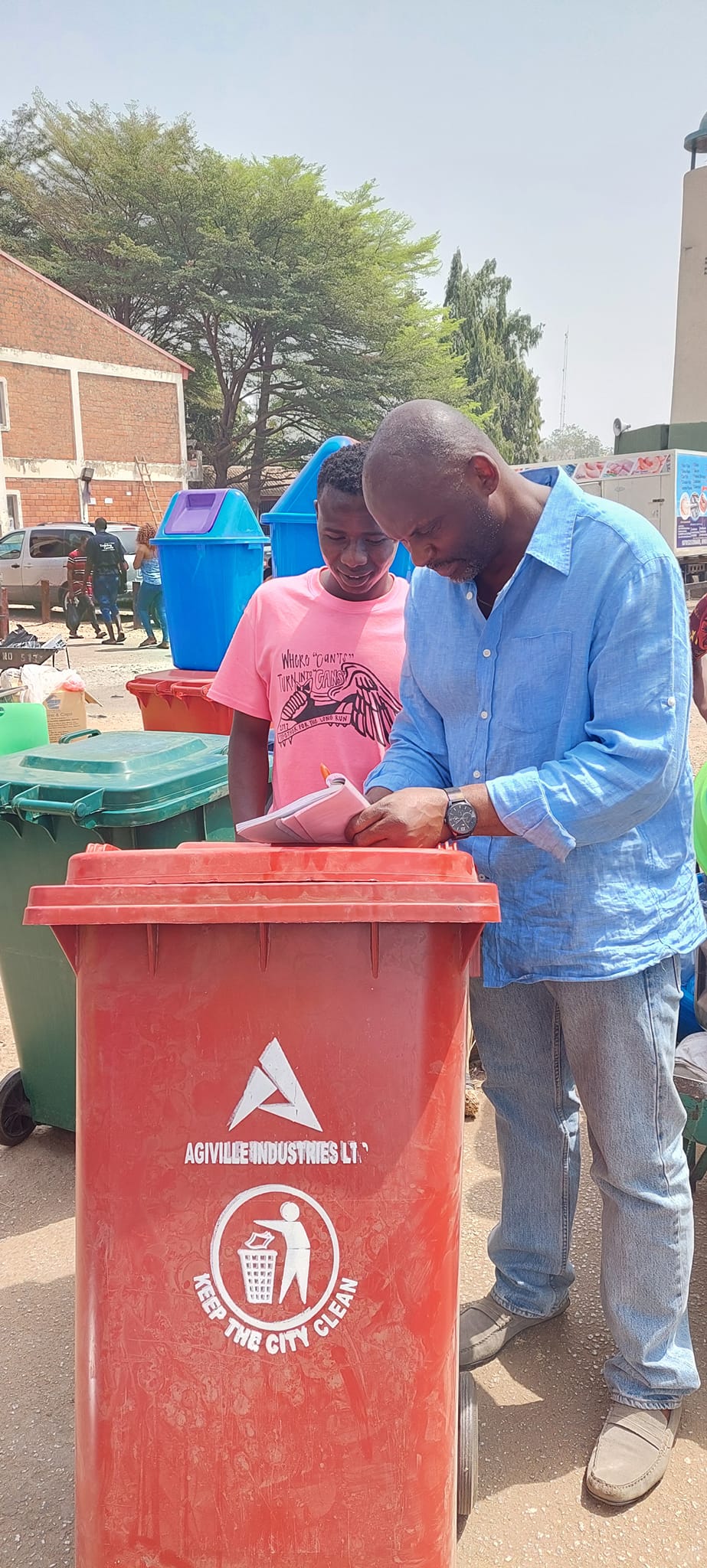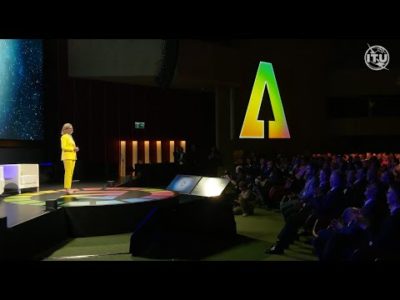
A Nigerian startup is leveraging Internet of Things (IoT) technology to provide a smart city waste disposal system for major cities like Lagos, Abuja, Enugu, Ibadan and several other urban centres where waste management is already a challenge.
Founder and mentor of an innovation charity, a non-profit hub and tech lab, Dr Agu Collins Anayochukwu Agu, is currently helping to mentor young Nigerians at the Technology Development for Poverty Alleviation Initiative (TD4PAI) to develop IoT Smart bins for waste management across Nigeria.
The TD4PAI IoT Hub is an Innovation Charity focusing on the innovative use of IoT and creation tech hardware.
RELATED COVID-19: Nigerian IT Expert To Launch IoT Based Remote Patient Monitoring System

Abuja waste bins points could be all smart and IoT led
Tonnes of waste everywhere
Each year, bins on streets of dozens of Nigerian urban centres collect tonnes of waste poorly managed in a way that poses major health and environmental risks.
ALSO READ: Technology Hubs Can Bring Prosperity To Rural Communities – UTRIE Hub
“[I am] currently mentoring a startup on Smart City Waste Disposal System,” Agu recently posted on his Facebook page.
“As the human population keeps growing in metropolitan cities such as Abuja, Lagos, Enugu, Awka, etc., so does their collective creation of increasingly large amounts of trash and litter. The public and private sectors are all trying to keep up with this, but are having a hard time.
“This is one of the reasons why there are many waste bins and dump sites overflowing coupled with so called ‘plastic soup’ floating in the oceans killing thousands of animals every year. So, what can be done? Smart Waste Management is an important part of the solution,” noted Agu, mentor of TD4PAI IoT Hub, and also the Director of Corporate Planning and Strategy at the National Information Technology Development Agency (NITDA).
The market for smart bins and IoT application in waste management is vast and largely untapped. In Nigeria, TD4PAI is exploring a green subsector with great challenges but greater opportunities.
Here is how one report puts it: “IoT plays a crucial role in enhancing smart city applications through real-time monitoring and management of city processes. But with almost two-thirds of the world’s population predicted to be living in urban areas by 2030, one of the biggest challenges cities will face is waste disposal. The world produces 2.01 billion tons of solid waste annually, with the amount of garbage produced by urban dwellers on track to reach 3.40 billion tons by 2050.
“Waste disposal expenses are on the rise as well, with the World Bank predicting global garbage collection costs to top $375 billion in the next five years. Fortunately, smart city initiatives are driving innovation in the waste management sector. Valued at just under $1.5 billion in 2018, the smart management market is projected to top $5 billion by 2025.”
What are smart bins?
In smart bin, a communication module allows notifications to be sent when the bin is ready to by emptied, or if there are any issues. Smart bins are designed to recognise different types of waste. A smart system positioned inside the container uses sensors, image recognition and artificial intelligence to do this.
Smart bins consist of IoT enabled sensors, which work as real-time indicators to determine if the bins are full or not, and help to customise the waste collection schedule accordingly.
Traditional waste bins not smart enough to solve increasing challenge
While the provision of traditional waste bins at vantage points by waste management organisations has helped to provide collection points, it has not solved the increasing challenge of waste management including spillage and inefficient collection scheme,
According to one research work, an IoT system provides a monitoring platform for the waste management organisation to handle the alert records by creating orders for the garbage collectors which can be accessed via a mobile application system.
The IoT driven system includes a smart waste bin which has a microcontroller-based system constructed and affixed to the top of the bins to detect bin level status and communicate to drivers and management office via SMS and application system. A work order is created once the utility is full which can be received by the drivers and routing system regarding the state of bins distributed within a specific geographic area that can be assessed on the drivers’ phone.
According to Agu, IoT based smart waste management allows for more cost effective and efficient management of waste. He provides a guide in his post.
The current situation:
So, smart waste management is a part of the solution. But, for what specific part of the problem? Well, as said, there is an increasingly large amount of trash and litter that we as a population create every day. We throw this away at home or wherever we are, usually in trash cans either inside or out on the street. But, where do people leave their litter when they aren’t home and the trash cans on the street are full? You guessed it, on the street itself. Municipalities have a hard time keeping up with these outdoor bins, because it is very difficult to figure out when to empty them or whether they are full or not at all.
A better way: smart waste management:
A much better way would be to use IoT based smart waste management which is characterized by the usage of technology in order to be more efficient when it comes to managing waste. This makes it possible to plan more efficient routes for the trash collectors who empty the bins, but also lowers the chance of any bin being full for over a week!
How does IoT based smart waste management work?
A very good question! When it comes to the way this actually works, there are usually two technological parts that work together in order to improve the smart waste management. The first one is physical in nature. Sensors incorporating Microchips and firmware are used to measure all kinds of data such as temperature, location, orientation of the bin, quantity of trash the times at which the bin receives the most trash as well as how full the bin is.
The second piece is a central software system incorporating AI for analytics. All the data that the bin collects is sent here so that it can be used to the advantage of the waste management for both the client such as Abuja Environmental Protection Board, estates etc and contractor.
When a bin is full, for instance, it will automatically send a signal and placed on the route. This way, the pickup service can easily drive the most efficient route. They don’t have to check on bins that are not full yet and can empty the ones that are straight away. This reduces environmental pollution, infestation with pests and the chances of any excess litter being dropped on the street, as well as the amount of green house gases the waste disposal trucks produce.
The connected system:
The software system and mobile App used to measure and control the smart waste management process is also very useful for municipalities. Because the system registers and records so much useful data for predictive maintenance and planning to improve other processes and policies as well!
The smart bins by td4pai IoT Hub is under development:
If you are looking for a good option when it comes to smart bins for your smart waste management system, td4pai IoT Hub would gladly tell you all about the many functionalities and useful design features and will gladly help you find out all there is to know about indigenous smart waste management and smart waste solutions!
Since its founding, the TD4PAI IoT Hub based in Kuje, Abuja has engaged in adaptation and indigenization of technology, and human capital development in emerging technologies.





























